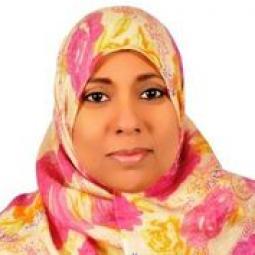OWSD Early Career Fellowships Launched
November 07, 2017
At the Gender Summit in Montreal, OWSD President Jennifer Thomson joined IDRC President Jean Lebel to announce the launch of 60 new OWSD Early Career fellowships.
Pour lire cet article en français, cliquez ici.
Jennifer Thomson and Jean Lebel announced a new partnership today between OWSD and the Canadian International Development Research Centre (IDRC). IDRC will invest 7.5 million Canadian dollars over 4.5 years to support 60 Early Careeer Women Scientists fellowships. These fellowships are designed to support women who have earned their PhDs in science subjects and are now employed at academic institutes in their home countries (from a list of 66 eligible developing countries). These women are committed to continuing their research and serving their communities but they are often demotivated by the lack of resources and training and the dispiriting sense of isolation. It is at this point, after they (and funders too) have invested so much time, energy and money in their careers, that women might give up and say that the research path is, after all, not for them. This is precisely the point where OWSD and IDRC can help.
The announcement about the ECWS fellowships was made during the 11th Gender Summit taking place in Montreal, 6-8 November.
OWSD President Jennifer Thomson spoke about the opportunities OWSD programmes provide for women scientists from developing countries for the panel 'UN Sustainable Goals in Practice: The Role of Women and Gender in Science' and it was here that Jean Lebel, President of IDRC and moderator of the panel, described the average global situation for women in science. While there are more women than men at undergraduate level (52%), at PhD level this decreases to 43%, and beyond PhD, the numbers of women staying on to do research reduce to 28%. As Karen Craggs-Milne (co-panellist and Director of the African Intitute for Mathematical Sciences) specified, these numbers are in any case misleading since 'researchers' refers to all disciplines, whereas we all know that more women tend to enrol in arts and humanities subjects and that, among the sciences, women are hugely under-represented in maths and physics, and over-represented in the life sciences. If we look at the African continent women researchers average 30% but of course this varies greatly country to country. For example, Togo only has 10% of women researchers, Senegal has 25%, while Mauritius almost achieves parity, with 42% women researchers.
Each of the panelists heads organisations that try to redress this imbalance of the number and quality of women in science in the firm belief that more women scientists and an attention to gender differences in designing and implementing solutions will mean better science and improved economies. Craggs-Mine for example, mentioned that, on average, African women spend 16 hours a day fetching water. 2.5 million engineers are needed to address this problem, and women need to make up a high percentage of those engineers. 80% of food production in Africa is undertaken by women who typically have a lack of access to land, financial credit and technology. If scientific and technological interventions and innovations are made both by women and with women in mind, chances are the solutions will be appropriate, and most importantly, implemented efficiently.
So, the new ECWS fellowships are a win-win solution: for committed, outstanding women leaders who want to continue developing their scientific research and compete at international level, while supporting their home economies and communities.
Click here for more details about the Early Career Women Scientists Fellowship Programme.
[N.B. Since the publication of this article the list of eligible countries and expenses has been updated and the Call for Applications published. Please check all current information using the link above.]











































